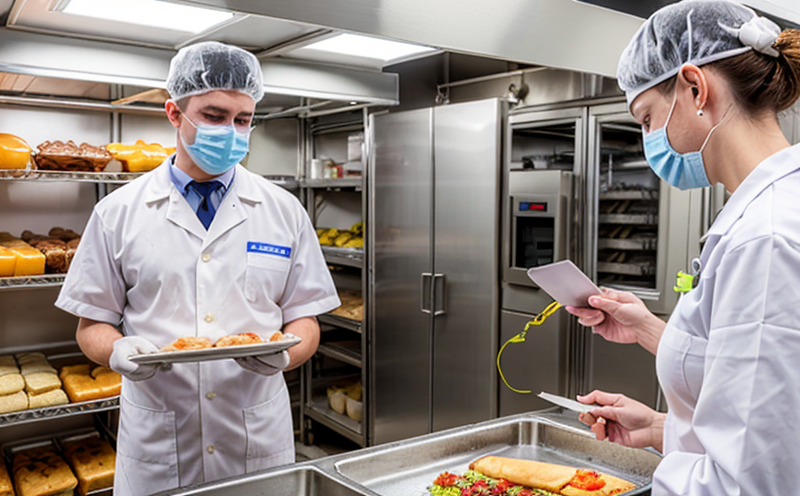Food Safety Inspections and Compliance: Ensuring a Safe Food Supply
The importance of food safety cannot be overstated. With the global rise in foodborne illnesses and outbreaks, it has become increasingly crucial for food establishments to adhere to strict guidelines and regulations to ensure consumer protection. One critical aspect of maintaining food safety is undergoing regular inspections by authorized authorities. In this article, we will delve into the world of food safety inspections and compliance, exploring what to expect during an inspection, how to prepare for one, and the consequences of non-compliance.
The Purpose of Food Safety Inspections
Food safety inspections are conducted by local health departments or other regulatory agencies to ensure that food establishments meet minimum food safety standards. These inspections are crucial in identifying potential hazards and preventing outbreaks. The primary goals of a food safety inspection are:
To identify any deviations from established guidelines and protocols
To assess the establishments adherence to proper food handling, preparation, and storage practices
To detect potential sources of contamination, such as pest infestations or equipment malfunctions
To educate staff on best practices for maintaining a safe food environment
Key Areas of Focus During an Inspection
Here are some key areas that inspectors typically focus on during a food safety inspection:
Food Handling and Preparation: Inspectors will evaluate how food is handled, prepared, and stored to ensure it remains within safe temperature ranges. This includes observing handwashing techniques, reviewing cleaning schedules, and inspecting refrigeration units.
Sanitation and Cleaning Practices: Inspectors will assess the cleanliness of the facility, including floors, walls, and equipment. They will also examine waste disposal practices, such as proper trash can storage and frequency of emptying.
Pest Control and Exclusion: Inspectors will search for signs of pest infestation, such as rodent droppings or live insects. They may also check for adequate exclusion measures, such as sealing entry points and using door sweeps.
Consequences of Non-Compliance
Failure to comply with food safety regulations can result in severe penalties, including:
Fines: Monetary fines imposed by regulatory agencies
License Revocation: Temporary or permanent revocation of the establishments license to operate
Closure: Mandatory closure of the establishment until compliance is achieved
Public Notification: Public posting of infractions and potential health risks
Preparing for a Food Safety Inspection
To minimize the risk of non-compliance, establishments should:
Develop and implement a comprehensive food safety plan that includes regular cleaning schedules, proper temperature control, and pest control measures
Ensure staff are adequately trained on food handling practices, including handwashing techniques and food storage guidelines
Conduct regular self-inspections to identify potential hazards before they become major issues
QA Section
Q:
What is the frequency of food safety inspections?
A: The frequency of inspections varies by jurisdiction, but most local health departments conduct annual or bi-annual inspections. Some establishments, such as high-risk facilities (e.g., those serving immunocompromised individuals), may be inspected more frequently.
Q:
Who conducts food safety inspections?
A: Inspections are typically conducted by authorized personnel from the local health department or other regulatory agencies. These inspectors may be certified in food safety and handling practices.
Q:
What should I do if I receive a notice of non-compliance?
A: Review the inspection report to identify areas for improvement, and take immediate action to correct any noted infractions. Provide evidence of corrective actions taken to the inspector or regulatory agency.
Q:
Can I appeal an inspection finding or penalty?
A: Yes. If you disagree with a finding or penalty, you can submit a formal appeal to the relevant regulatory agency. This typically involves providing additional information or evidence to support your position.
Q:
Are there any exemptions from food safety regulations?
A: Some establishments may be exempt from certain regulations, such as small-scale farms or home kitchens. However, these exemptions are typically limited and subject to strict guidelines.
Q:
How do I know if an inspector is authorized?
A: Authorized inspectors will always provide identification and a clear explanation of their role and authority. If you have any doubts about the authenticity of an inspector, contact your local health department for verification.
Additional Tips
Always keep accurate records of food safety practices, including cleaning schedules, temperature logs, and pest control measures.
Regularly review and update your food safety plan to ensure it remains compliant with changing regulations and guidelines.
Stay informed about new developments in food safety by attending workshops or conferences and following reputable industry publications.
In conclusion, maintaining a safe food environment is an ongoing process that requires dedication, attention to detail, and a commitment to compliance. By understanding the purpose of food safety inspections, focusing on key areas of concern, and preparing for potential issues, establishments can minimize their risk of non-compliance and ensure consumer confidence in the quality and safety of their products.

































